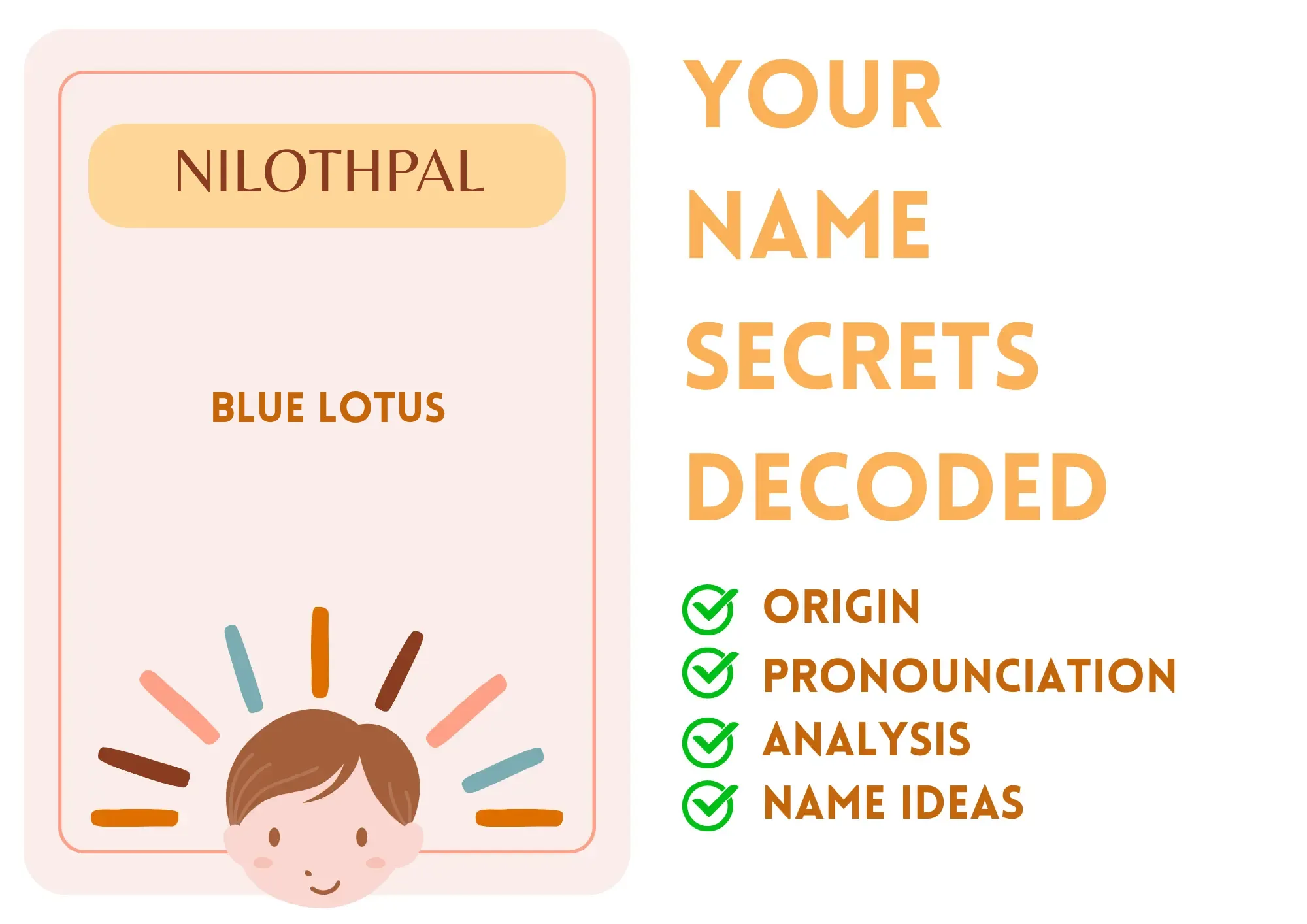
Nilothpal
Nilothpal is a unique and meaningful name of Sanskrit origin, translating to 'blue lotus'. It is predominantly used in Indian culture and is primarily a masculine name, although it can be found as a unisex choice. The name carries deep significance in Hinduism, where the lotus is a symbol of purity, enlightenment, and divinity. Moreover, the blue lotus (or Nilothpal) is often associated with the goddess Lakshmi and represents beauty and prosperity.
Nilothpal is viewed positively, evoking cultural resonance tied to spirituality and nature. Its complexity can be charming, but it may pose some challenges in writing and pronunciation for those unfamiliar with the name. Common nicknames include Nilo and Pal.
The name is relatively rare in popular culture but can appear in literature referencing themes of beauty and spirituality, aligning with its cultural significance.
Basic Information
Gender: Boy
Sounds Like: NIL-oh-th-pahl
Pronunciation Explanation: The name is broken into three syllables: 'NIL' pronounced like 'nil', 'oh' as in 'go', and 'thpahl' where the 'th' is soft.
Summary and Meaning
Meaning: blue lotus
Origin: The name Nilothpal has Indian origins, deeply rooted in Sanskrit language and Hindu culture.
Usage: Nilothpal is traditionally a masculine name, but variations can be considered unisex.
Name Number (Chaldean)
Name Number (Pythagorean)
Name Constellation (Nakshatra)
Name Zodiac Sign (Rashi)
Religious and Cultural Significance
Religion: Hindu
Background: In Hinduism, the blue lotus signifies divine beauty and is often linked with deities such as Lakshmi and Brahma, symbolizing spiritual awakening and purity.
Cultural Significance: Nilothpal is valued for its aesthetic and spiritual connotations, representing beauty and prosperity in Hindu culture.
Historical Significance: The blue lotus is referenced in various ancient texts and plays an important role in Hindu iconography, representing purity emerging from muddy waters.
Popular Culture
Literature and Mythology: The name Nilothpal can be found in poetic works and stories related to Indian mythology and nature, symbolizing beauty and enlightenment.
Movies and Television: Although not widely used, characters with names inspired by nature or flowers sometimes reflect the qualities associated with the blue lotus.
Feelings and Perceptions
Perception: Nilothpal is perceived as a poetic and spiritual name. It evokes thoughts of nature, beauty, and divinity.
Positive Feelings: Unique, spiritual, meaningful, connected to nature.
Negative Feelings: Could be seen as complex or difficult to pronounce for some.
Practical Considerations
Ease of Writing and Calling: The name Nilothpal is somewhat complex, comprising three syllables. While unique, it may take a bit of patience for others to learn to pronounce and spell correctly.
Common Typos and Misspellings: Nilotpal,Nilothpal,Nalothpal,Nilotapal
Common Nicknames: Nilo,Pal,Nil
Compatibility Analysis
Famous Persons Named Nilothpal
No results found for Nilothpal.
Related Names
Similar Sounding Names:
Nilakshi,Nilesh,Nihar,Neelam